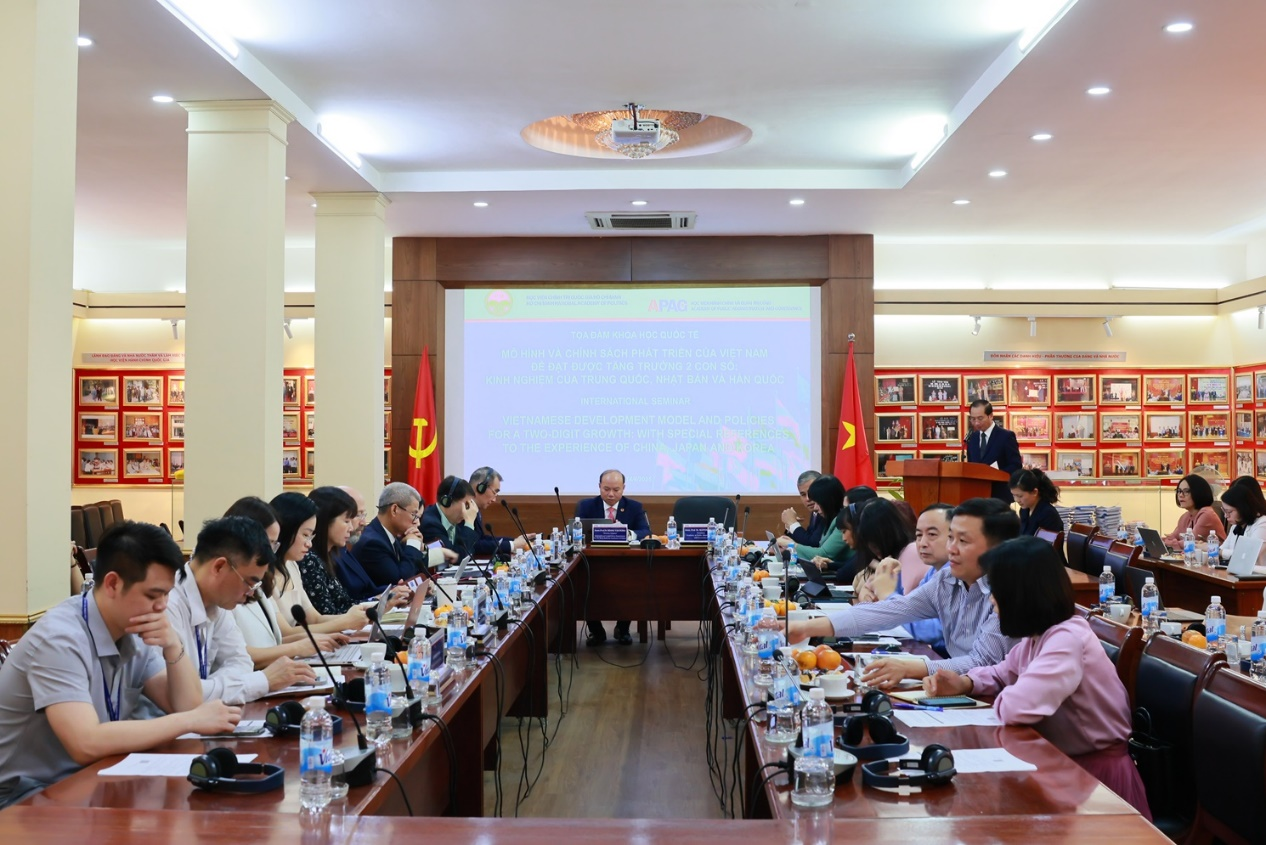
Notable guests attending the seminar included Prof. Justin Yifu Lin, Dean of the Institute of New Structural Economics, Peking University (China), Prof. Keun Lee, Distinguished Professor, Seoul National University (Republic of Korea); Prof. Tran Van Tho, Distinguished Professor, Waseda University (Japan); Dr. Doan Thi Thanh Ha, Economist, Economic Research Institute for ASEAN and East Asia (ERIA); Mr. Tran Dong Phuong, Senior Policy Fellow at ERIA; Mr. Jonathan London, Senior Economic Advisor at the United Nations Development Programme (UNDP); other experts from ERIA.
From HCMA, delegates included Dr. Nguyen Thi Hong Van, Deputy Director General of the Department of International Cooperation; Lecturers from the Faculty of Political Economics at the Academy of Journalism and Communication; Faculty of Socio-Economic and Environmental Economics, Academy of Politics Region I.
From APAG, there were Dr. Bui Phuong Dinh, Vice President; heads and representatives from APAG departments and faculties; experts, researchers, lecturers, graduate students, and doctoral candidates currently studying APAG.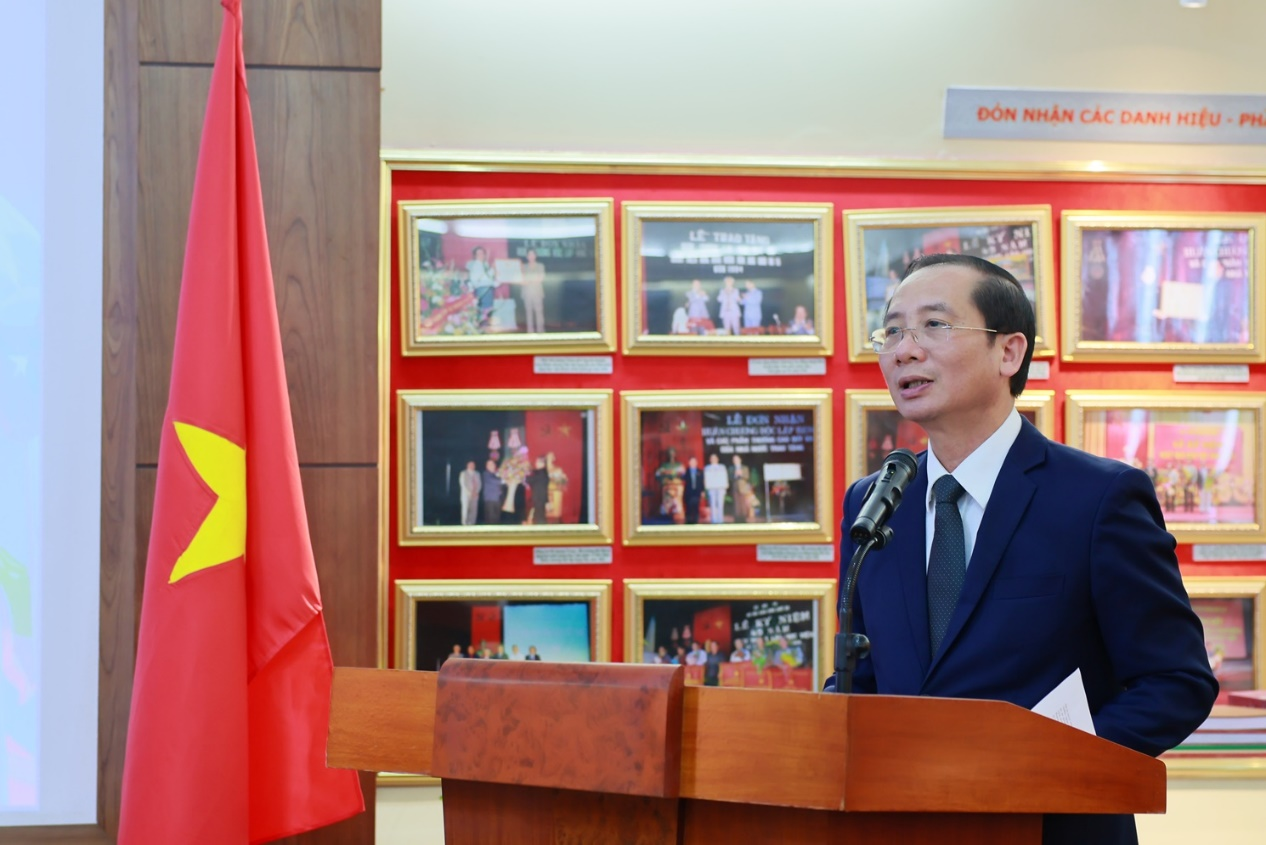
In his opening speech, Assoc. Prof. Dr. Nguyen Ba Chien emphasized Viet Nam’s strategic ambition to achieve two-digit economic growth in the coming decades, reflecting the nation’s aspiration to rise, innovate, and affirm its regional and global standing. He cited the remarks of Party General Secretary To Lam at the national conference summarizing the implementation of Resolution No. 18 (issued December 1, 2024), in which the Party General Secretary stated “To reach upper-middle-income status by 2030 and high-income status by 2045, Viet Nam must maintain two-digit economic growth for the coming years. This is an extremely challenging task that we must accomplish.” To realize this ambition, Viet Nam needs a solid knowledge foundation, a synchronized development strategy, and, most importantly, the intelligent adaptation of international lessons—especially from countries that have experienced rapid growth phases such as Japan, China, and South Korea.
The international Seminar “Vietnamese Development Model and Policies for a Two-Digit Growth: With Special References to the Experience of China, Japan, and Korea” provided a meaningful platform for experienced international scholars to share strategic thinking, valuable experiences, and practical lessons in shaping development models, refining policies, and promoting high growth. Assoc. Prof. Dr. Nguyen Ba Chien expressed confidence that the insights shared would provide actionable ideas for Viet Nam’s new development journey.
As a specialized institution in public administration and governance, APAG is fully aware of its role in institutional improvement, national governance capacity enhancement, and support for Viet Nam’s reform journey. Co-organizing the seminar was a practical opportunity to reaffirm the APAG’s commitment to bridging academia with practice, theory with action, and national vision with innovative public governance thinking.
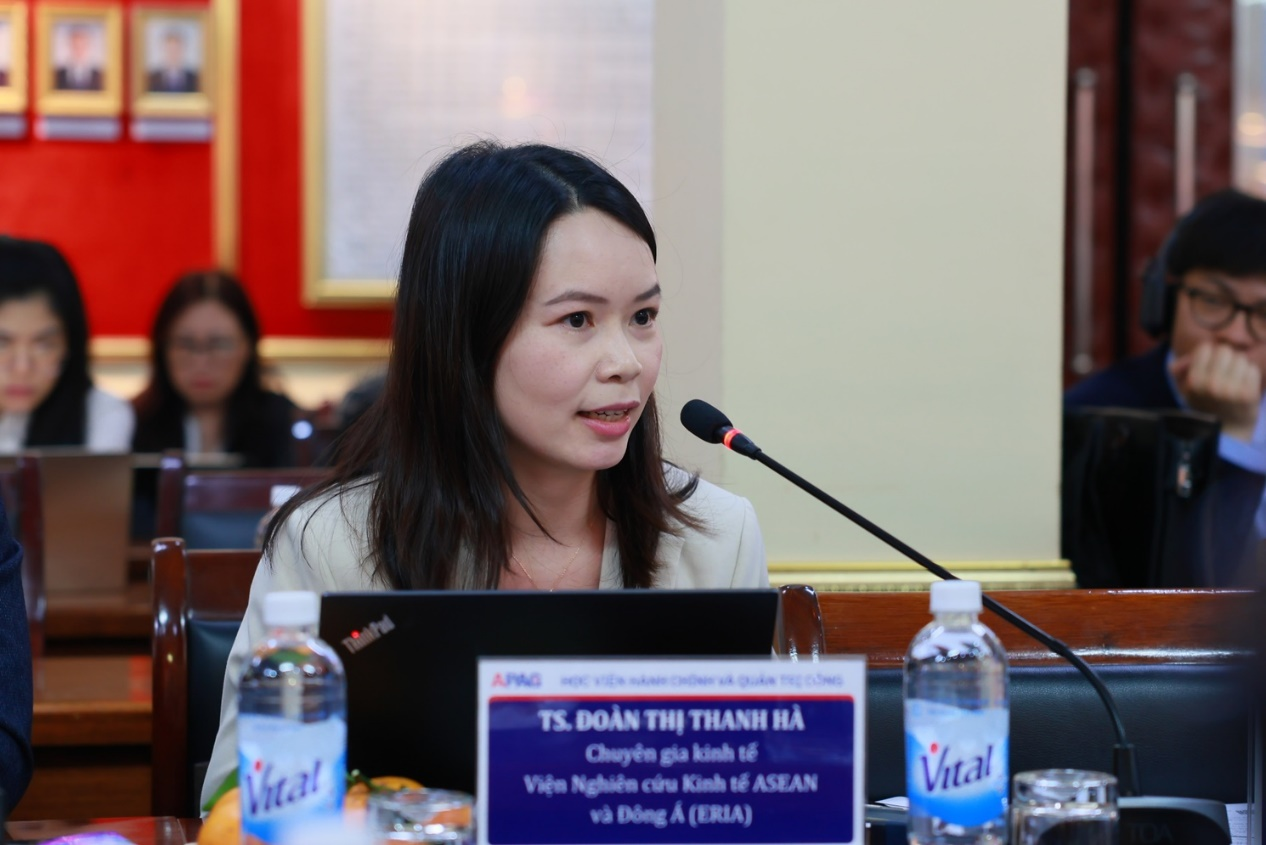
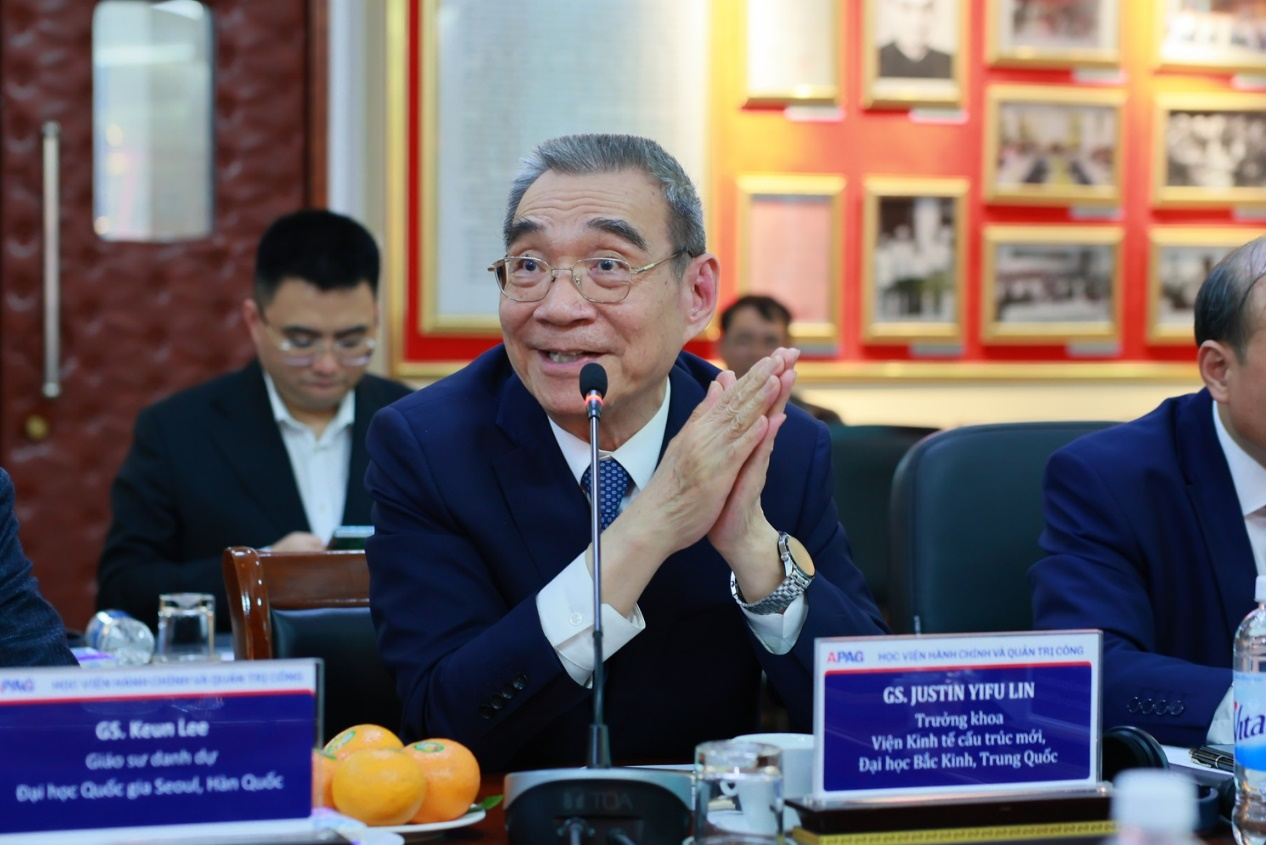
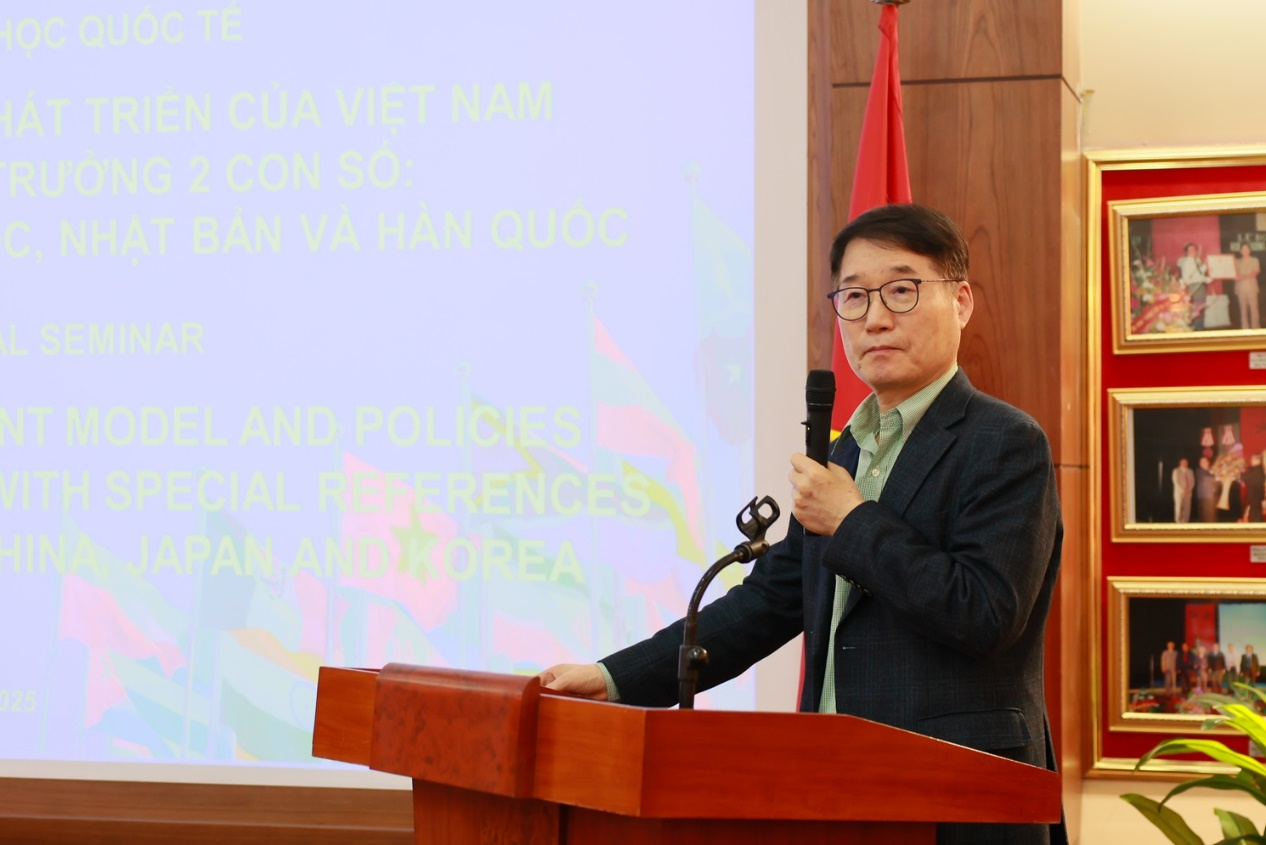
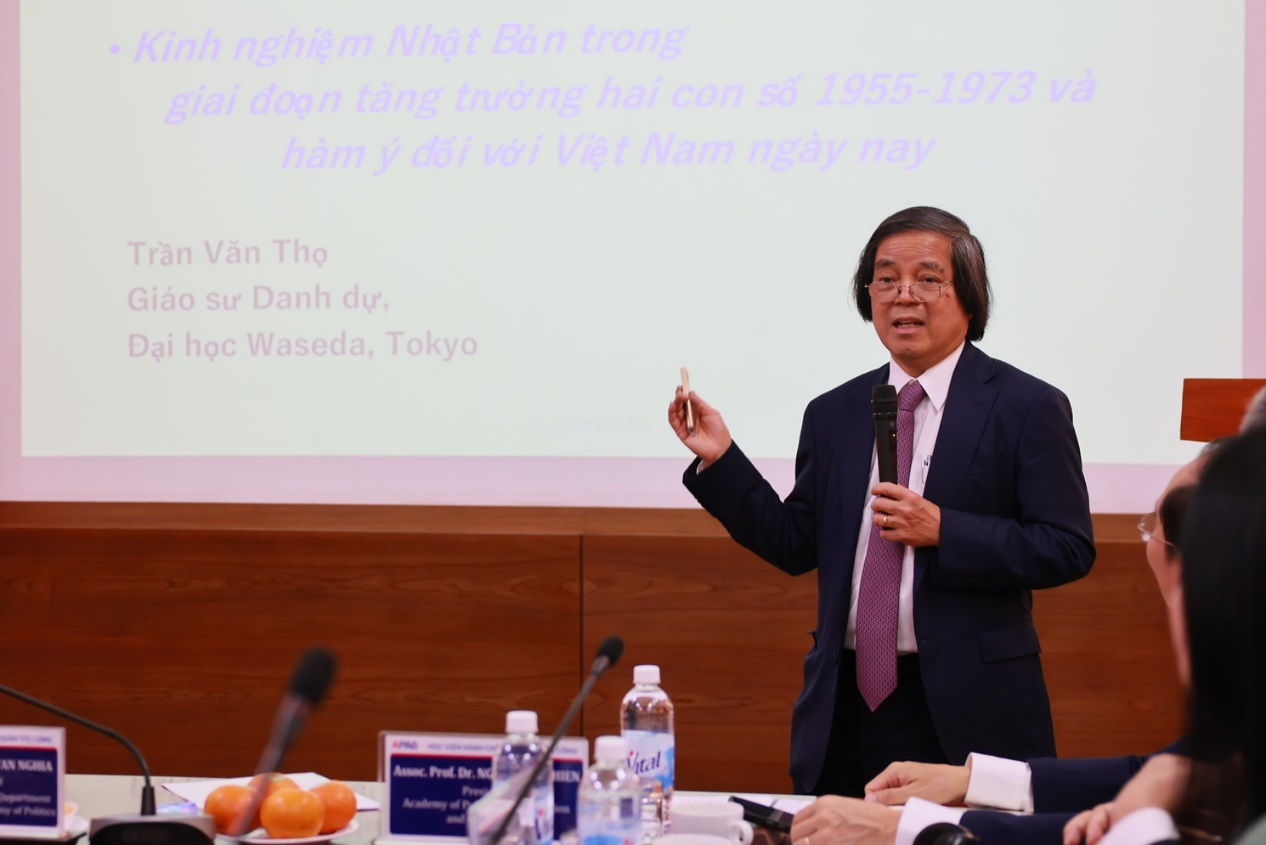
In his closing remarks, Assoc. Prof. Dr. Nguyen Ba Chien expressed deep appreciation for the insights shared by the experts. He hoped that despite differing historical contexts and development paths, the economic growth models of Japan, South Korea, and China demonstrated the crucial role of strong political will, consistent industrial policy, and long-term investment in education, science, technology, and institutions. These would help Viet Nam better understand the driving forces and challenges of achieving a two-digit growth, thereby crafting feasible and sustainable policies tailored to its unique context.
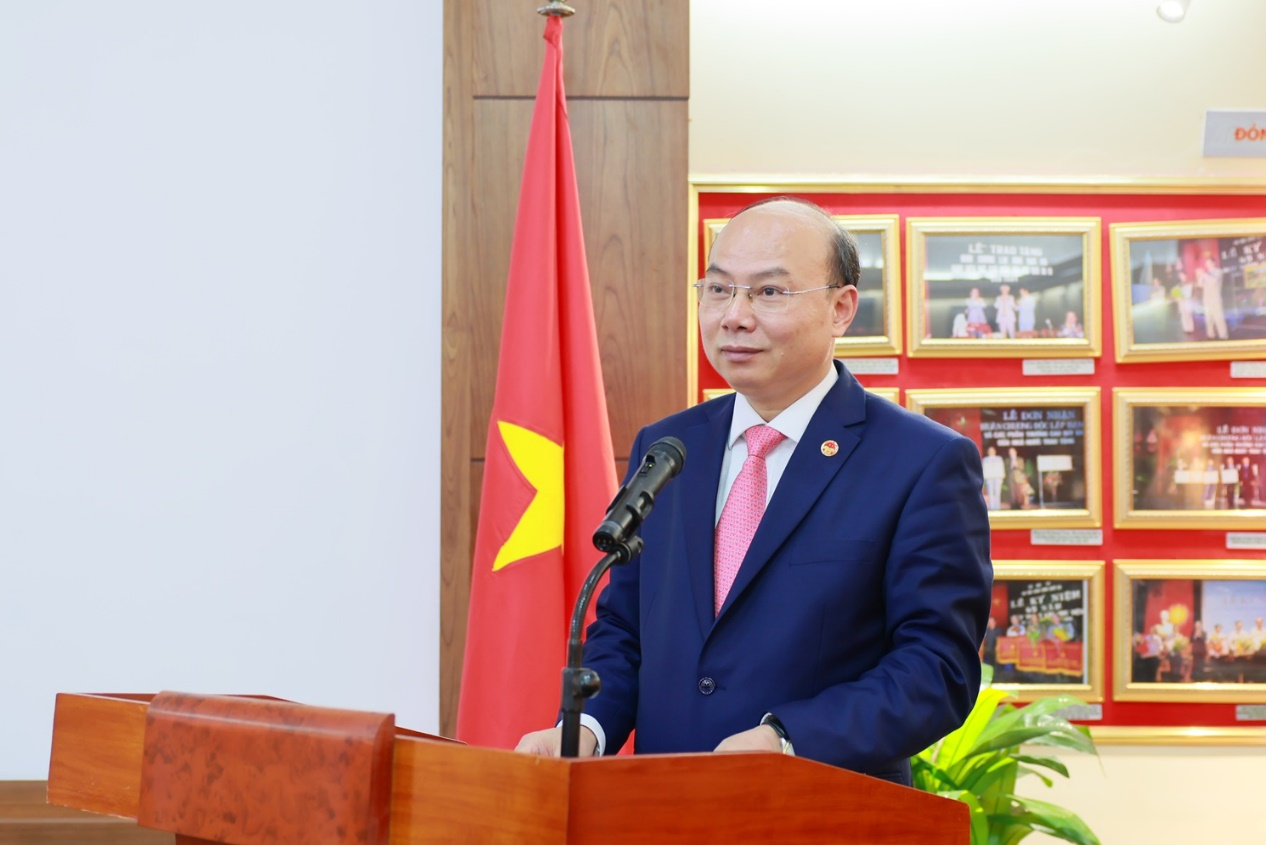
 Participants of the seminar.
Participants of the seminar.